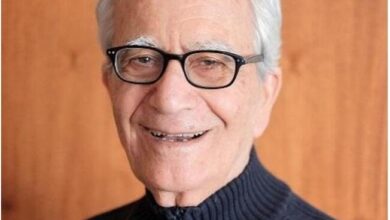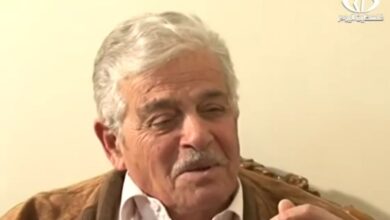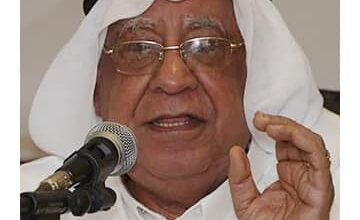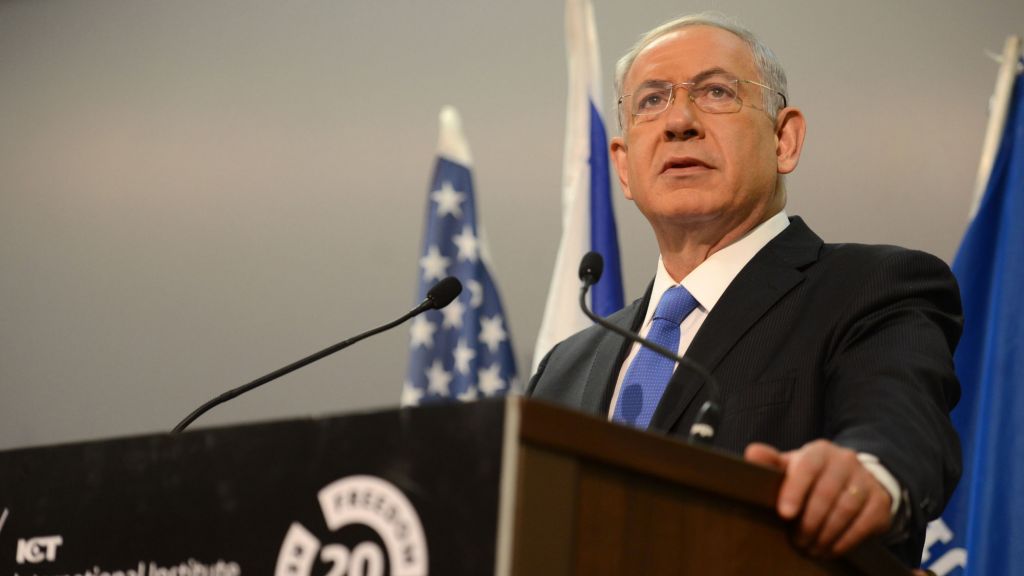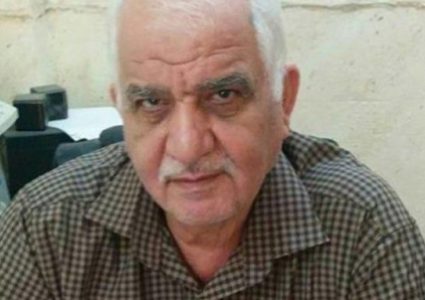
Trump’s paranoia pushes the world into the abyss
By ALI ABO HABLAH
US President Donald Trump has given Hamas until next Saturday to withdraw the suspension of the prisoner exchange due to Israeli violations, stressing that he will call for the cancellation of the ceasefire.
Reuters quoted Trump as saying: “The gates of hell will open if the hostages do not return from Gaza if all the hostages are not returned by 12 noon on Saturday I will call for the cancellation of the ceasefire,” noting that “Israel can cancel the ceasefire agreement.”
He added that he will hold a conversation with Israeli Prime Minister Benjamin Netanyahu about considering next Saturday as a “deadline for the return of hostages from Gaza.” The US president’s remarks came after the announcement of the military spokesman for the “Qassam Brigades” Abu Obeida on Monday evening, postponing the delivery of Israeli prisoners who were scheduled to be released next Saturday, due to repeated Israeli violations, and pointed out that “this postponement continues until the commitment of the occupation and compensation for the entitlement of the past weeks and retroactively, and we affirm our commitment to the terms of the agreement The occupation adhered to it.”
The US president also threatened the Hashemite Kingdom of Jordan and the Arab Republic of Egypt to stop aid if they refused to receive Palestinian refugees as part of his plan to displace the people of the Gaza Strip, noting his belief that “Jordan will receive refugees.”
This comes after Trump renewed his statements calling for the displacement of the residents of the Gaza Strip, under the pretext of reconstruction, at a time when the Israeli army continues to violate the ceasefire agreement, which has entered its 23rd day.
Trump repeated his controversial remarks on Gaza, saying this time that he remains “committed to buying and owning Gaza,” adding that he “may give parts of the Strip to other countries in the Middle East to build it,” stressing that he will turn Gaza into a good site for future development, and “will care about the Palestinians, and make sure that they are not killed.” Despite the US president’s statements, Amman and Cairo have affirmed their categorical rejection of the displacement of the Palestinian people, stressing that the lands of Palestine belong to the Palestinians, and will not allow the liquidation of the Palestinian cause.
Threats and statements of Trump are tantamount to pouring oil on the fire and igniting the conflict in the region, which is issued only by a president characterized by paranoia and pride, which is “a term that describes a state of belief where a person exaggerates by describing himself contrary to reality, claiming to possess exceptional capabilities and mighty abilities or distinctive talents or large sums of money or important relationships” This term has been used by specialists in the description of pathological cases in which paranoia is accidental, as is the case in some mental illness.”
If Trump really suffers from an illusory disorder, a complex of superiority, delusion, and a psychological disorder, or suffers from a psychotic condition (mental illness) characterized by clear and continuous delirium, and what is characterized by a fixed and regular set of delirium, he has issued many statements that confirm this, including statements about Gaza and his desire to own it and the displacement of its people, threats to Jordan and Egypt, if it does not receive the displaced, he will be forced to take action against them, threaten Canada and consider it the fifty-first state, threaten Mexico and Panama, and take measures against China and Europe, and several decisions. The statements indicate a state of delirium and the control of a set of beliefs that reflect feelings of greatness and feelings of persecution, and he lives authoritarian ideas that cause him delirium and makes statements that are out of the ordinary in the world of politics
To answer this question, it is necessary to understand who Donald Trump is, and what is going on in the mind of this man, who poses a danger to humanity, according to psychiatrist Band X Lee, president of the Global Alliance for Mental Health. For X-Lee, Trump is “a narcissistic person who sees himself and his life more important than the rest of humanity combined.” From the moment he ran for president until the end of his first term, researchers and journalists were busy digging into Trump’s past and life milestones in search of an answer to the central question: Why is he acting this way?
Several psychologists, including John Cartner of Johns Hopkins University, Lance Dodds, a researcher in compulsive addictive behavior, and Just-Frank, a psychiatrist who has practiced for more than forty years, are unanimous in their research on Trump’s personality as having “malignant narcissism,” a serious illness identified by renowned psychologist Erich Fromm in 1964. This disorder consists of a severe combination of narcissism, antisocial personality disorder, sadism, and a sense of grandeur. According to these experts, Trump is not qualified to be at the head of the United States of America, he is obsessed with himself, seeking his personal glory, not to make “America great again” as he claims.
In his second term, he did not expect Trump’s approach to change, but his psychological concerns grew more fragile, which psychiatrist Band X Lee tried to explain in the book “The Dangerous Case of Donald Trump,” where she explained how dangerous it is for him to remain in power over the world.
Therefore, it is no wonder today that the White House looks like it, with Trump returning with his inexperienced and incompetent followers at the head of the US administration. Suffice it to mention that he appointed a TV presenter to the post of defense minister of the most powerful army in the world! Not to mention his reckless foreign policy statements and decisions, which antagonize allies before enemies, such as his threat to annex Canada, occupy Greenland, and seize Gaza.
Trump returned to the White House with the idea of redefining Washington’s position in the world but with the logic of a businessman who recognizes only immediate gain and loss. He does not see much effectiveness in international alliances, considers international institutions as constraints that constrain America’s sovereignty, and agreements are losing deals that may have to be renegotiated on his own terms. Analysts and psychiatrists see this approach as not just a change in strategic priorities, but a clear reflection of his personality—a man who listens only to himself, is convinced of his absolute genius, obsessed with imposing his hegemony over everything, even at the cost of destroying the system that has made America the world’s only superpower.
In his second term, Trump seems no longer just a populist president, but a right-wing leader chaotically reshaping international relations, disintegrating institutions, and breaking political traditions.
What psychological motivations make Trump love to break traditions, break rules, and dismantle institutions? Does his approach stem from a well-thought-out political vision, or from a psychological disorder that pushes him to prove his superiority through demolition rather than construction?
According to a report by the Miller Center of the University of Virginia, US foreign policy, which has long been centered on Washington’s leadership of the world order, found itself at a sharp juncture with the rise of Donald Trump. Despite decades of institutional commitment to global hegemony, Trump has exploited a wave of popular discontent that has been taking shape since the end of the Cold War and escalated with the fallout from the long wars in Iraq and Afghanistan after the Sept. 11, 2001, attacks.
This general fatigue of foreign military interventions was linked by Trump to his populist rhetoric, in line with his vision of foreign policy as a response to the suffering of America’s “forgotten men and women,” whom he considered victims of economic globalization.
His approach was not merely a withdrawal from international obligations but was accompanied by a dual and contradictory vision that combined isolation and the strengthening of military power, which led to the reformulation of international relations according to the principle of unilateralism, away from multilateral arrangements. Thus, one of the pillars of the “America First” agenda has become the dismantling of bilateral and multilateral agreements, replacing them with direct deals between countries, where Washington’s conditions are imposed without institutional constraints.
Trump was outspoken in his hostility to the European Union, which he saw as more an economic adversary than a strategic ally, and did not hesitate to threaten NATO to withdraw from it, arguing that defending Europe was a financial burden that the United States should not bear. In June 2017, Trump announced the withdrawal of the United States from the Paris climate agreement, in a move that confirmed his contempt for international cooperation on environmental issues, a decision that Joe Biden quickly canceled on the first day of his presidency, but immediately after Trump’s return and a day after his inauguration, he again announced the withdrawal of the United States from the Paris climate agreement.
After returning today, Trump resumed his targeting of the International Criminal Court, using the same sanctions to protect Israeli leaders accused of war crimes and genocide in Gaza. After his return, and in less than a month, Trump signed an executive order imposing sanctions on the International Criminal Court and declaring a “national emergency to deal with the threat posed by the court’s efforts,” after it issued arrest warrants for Israeli Prime Minister Benjamin Netanyahu and dismissed Israeli Defense Minister Yoav Galant for their crimes in the Israeli war on Gaza.
Trump’s stance on the ICC was only part of a broader strategy of ignoring international law and dismantling multilateral institutions. During his first term, he paid no attention to UN resolutions or international laws related to the Israeli occupation of Palestinian territories, but rather reinforced his unilateral approach to foreign policy, announcing in December 2017 the US recognition of Jerusalem as Israel’s capital, disregarding decades of international consensus on the status of the city. In May 2018, the United States officially opened its embassy in Jerusalem, amid a wave of Palestinian and international outrage. Today, after the occupation launched a war of extermination in Gaza, Trump came out to mess with the region again, hosting Netanyahu in the White House amid demands from Amnesty International for his arrest. After he and Netanyahu exchanged compliments, Trump shuffled the cards and came out with surprising decisions for many, proposing the idea of the United States taking over Gaza and displacing its people, flouting all international laws, history, and the complex political reality of the region and unleashing his statements, threatening and threatening Gaza to open the gates of hell.

